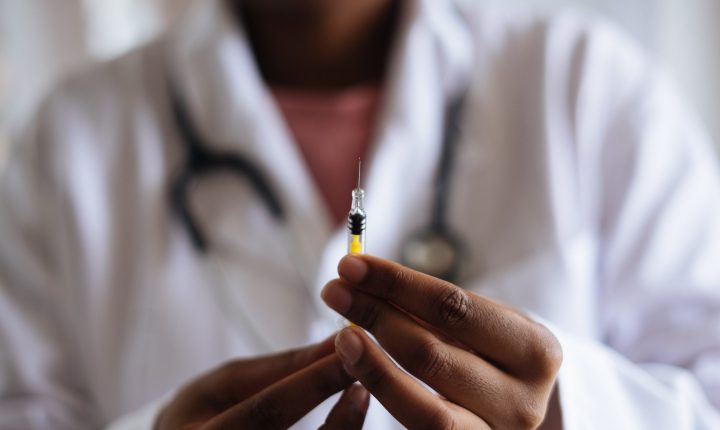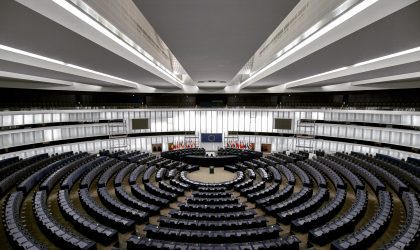
A visible CEO is now more essential than ever
Nobody knows how long exactly this crisis will last, what the “new normal” will look like or the new ways we will work together. It is a huge challenge to…
October 21, 2021

The media appearances of several pharma companies in the Netherlands did not go unnoticed during the COVID-19 pandemic. A unique event, especially in the pharmaceutical world. Is advertising for a drug manufacturer actually allowed in our country? And what can other pharmaceutical companies learn from this? Daniëlle Friskes, Director Healthcare & Biotech, and Marjolein Rigter, Director Reputation Management (both working at Omnicom PR Group) answer four questions. And as a bonus, they share five tips to keep in mind.
Daniëlle: “We saw several pharmaceutical companies partaking in talk shows . The pharmaceutical industry is not used to this kind of attention, not in that form. But it was also about the way that it was done, very skillfully and with great dignity. For example, Pfizer spokesman Marc Kaptein is a doctor himself, knows what he’s talking about, and conveys his points well. His television appearances suddenly gave the pharmaceutical industry a face.”
Marjolein: “That there was a need to literally humanize the industry was already evident in the reputation study we conducted for the Dutch industry association for Innovative Medicines (VIG) in 2019 from Omnicom PR Group. At that time we did not know that we were in the dawn of a pandemic. Even then our recommendation to the industry was to be more open, dare to share dilemmas, and to include people in how the system works and why it works the way it does.”
Daniëlle: “Pfizer showed how to do that, but was not alone. Hanneke Schuitemaker, a virologist speaking on behalf of Janssen, a truly Dutch company with a high likeability factor, also did well in the media.” Marjolein: “Kaptein had the wind in his sails, because he had a very positive message to share with the wide availability and good efficacy of the Pfizer vaccine. The challenge, of course, is to hold on to this when there is less (favorable) news to report. Pfizer has taken a courageous step to stand out from the crowd; I hope that this has started a new movement.”
Daniëlle: “In the Netherlands, these companies are bound by all sorts of strict communication restrictions. For example, you are not allowed to advertise, or express a preference, when it comes to medicines and drug manufacturers. The penalty for these actions is high fines from the advertising code committee.”
Marjolein: “The ban on public advertising exists to prevent a doctor from prescribing a drug to a patient, under pressure from an outside source. It should be about what is best for a patient. And the assumption is that a doctor can determine this best. The vaccination campaign completely undermined this principle.”
Daniëlle: “Vaccines are purchased centrally by the government and distributed through the National Vaccination Program. Nobody knows who manufactured the so-called DTaP-IPV-Hib-HBV vaccinations, or even the flu shot. There is absolutely no brand awareness among the average Dutch person. Or rather: there was no brand awareness. This was completely changed by COVID-19. Suddenly there was a race against the clock as to who would invent the first vaccine. And so the media frequently covered the manufacturer(s) of the redeeming vaccine and for whom which vaccine would be available.”
Marjolein: “So the general public suddenly knows a lot about the various vaccines because of all the attention. In short: brand awareness has been created. That’s really unique.”
Daniëlle: “The importance of a personal and simple message about a drug or treatment. That helps to get the story across to a large audience. Many pharma companies prefer to stay in the background. Staying on guard is the reoccurring feedback I often hear: ‘Before you know it, it’ll be about: why are medicines so expensive and why do you earn from them?’ Our advice: tell it how it is and explain the risks that you are taking when developing new medicines.”
Marjolein: “What’s also striking is that most vaccine suppliers have a medical director as their spokesperson, someone who knows everything there is to know about the subject. Yet we hardly ever see these people in the media. Bear in mind that it is much easier to get angry at an institution rather than at a person. If you know that person and they are able to show their own vulnerability and that of the organization, then understanding is generated.”
Daniëlle: “The pharmaceutical brand awareness within our society will only continue to increase. That makes it a perfect time for a different way of communicating and the industry clarifying what it stands for. A perhaps somewhat conservative world has now learned to loosen up by being more daring.”
Marjolein: “As I just explained, we already emphasized the importance of transparency in 2019 through our reputation survey for the Dutch industry association for Innovative Medicines (VIG). If the pharmaceutical world wants to learn anything from this pandemic, it should step out of its comfort zone and seek publicity. Society expects it.”
STAY ACCESSIBLE AND PERSONAL
In a complex sector, with many legal restrictions, putting a face to an organization is more important than you might think. The difficulty of maneuvering seems to be over. Being more open and personal really helps. Seek openness: create blogs, videos, podcasts, and tell your story.
REACT
Sit still whilst you’re being dragged through the mud? Those days are also over for the pharmaceutical industry. In fact, not responding at all is considered the worst thing you can do in this world. It is always better to make yourself heard, but think well about how you will do this, also from a legal point of view.
DARE
Granted, it takes some getting used to and is quite exciting, but pharma companies who show courage will get a little further.
WORK TOGETHER
Synergies help. Seek support from others, including competitors, and form collaborations and alliances where possible. That’s better than fighting every battle alone. Branch organizations, such as the VIG, should provide a general explanation of the various vaccinations, the risks, and the way they are carried out. This adds further nuance to the debate.
THE MOMENTUM
That one organization is now the spearhead, and others are not, isn’t always justified. It often comes down to momentum. Remember that there will probably also come a time when the roles are suddenly reversed. Be prepared!

Nobody knows how long exactly this crisis will last, what the “new normal” will look like or the new ways we will work together. It is a huge challenge to…

Healthcare is essentially an exclusively national matter within the European Union. However, EU policy has a major impact on our lives and our health. To better understand this, we need…